When I was 22, I could stay up 'til dawn drinking with friends, sleep on someone's floor, and still wake up feeling fresh as a daisy. Now that I'm in my late 30s, however, a couple of glasses of wine too close to bedtime can lead to waking up with "hangxiety," aka a hangover plus anxiety.
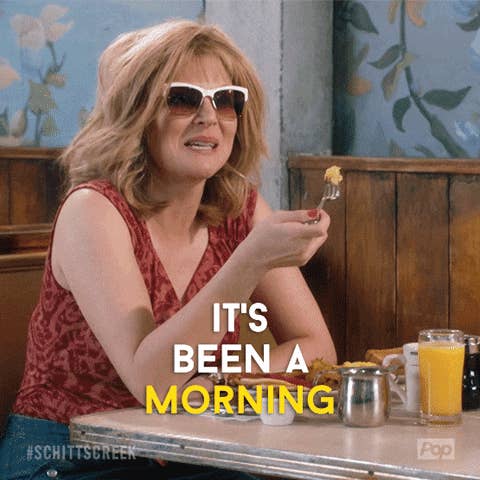
I know I'm not the only one — recently, I've noticed people talking about hangxiety on TikTok, Reddit, and Twitter. Some people report feeling anxious about what they may have said or done while drinking, while others say that their post-drinks anxiety feels more physical like it's coming from their bodies.
Psychiatrist and author Dr. Daniel G. Amen told BuzzFeed that there are a few reasons why alcohol can lead to anxiety. He says, "Drinking alcohol can lead to next-day anxiety, or 'hangxiety,' in several ways. For example, alcohol disrupts sleep and can block REM sleep, and a lack of quality rest can make you feel more anxious."
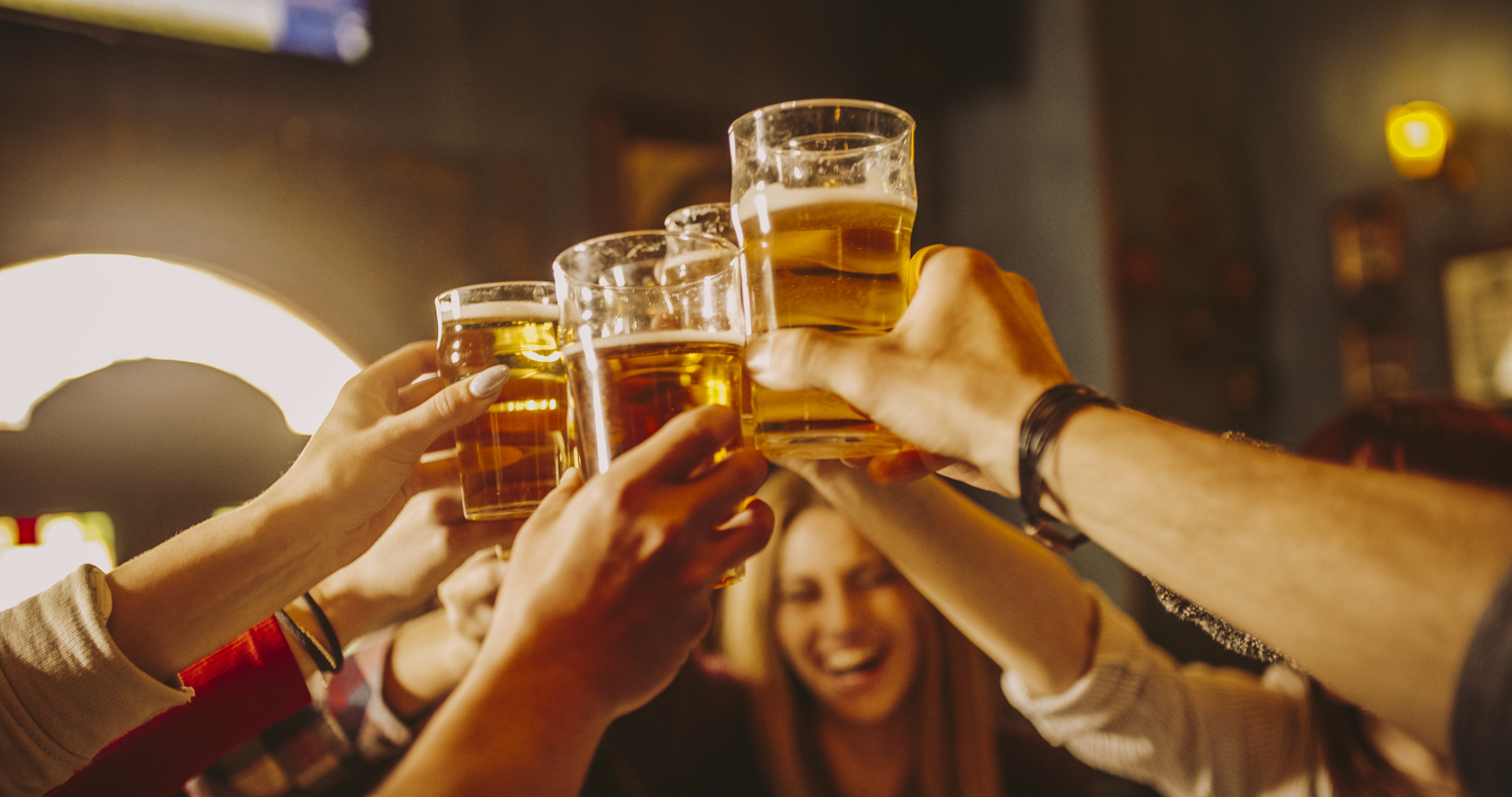
According to reporting in the New York Times, women may feel the effects of poor sleep after a few drinks more acutely. Whether due to hormonal fluctuations during the menstrual cycle or insomnia brought on by perimenopause or menopause itself, women already tend to get less quality sleep than men do. If your normal sleep cycles aren't so restful, it makes sense that adding alcohol and its accompanying sleep disruptions to the mix could result in an even worse night — and an anxious morning.
Additionally, Dr. Amen says that alcohol's effects on our hormones can contribute to hangxiety. "Alcohol consumption also elevates stress hormone levels, which is associated with increased risk for anxiety." Stress hormones like cortisol and adrenaline signal to your body that you're in danger and can activate your fight or flight response. If you're someone who experiences hangxiety as more of a physical feeling, elevated stress hormones could be to blame.
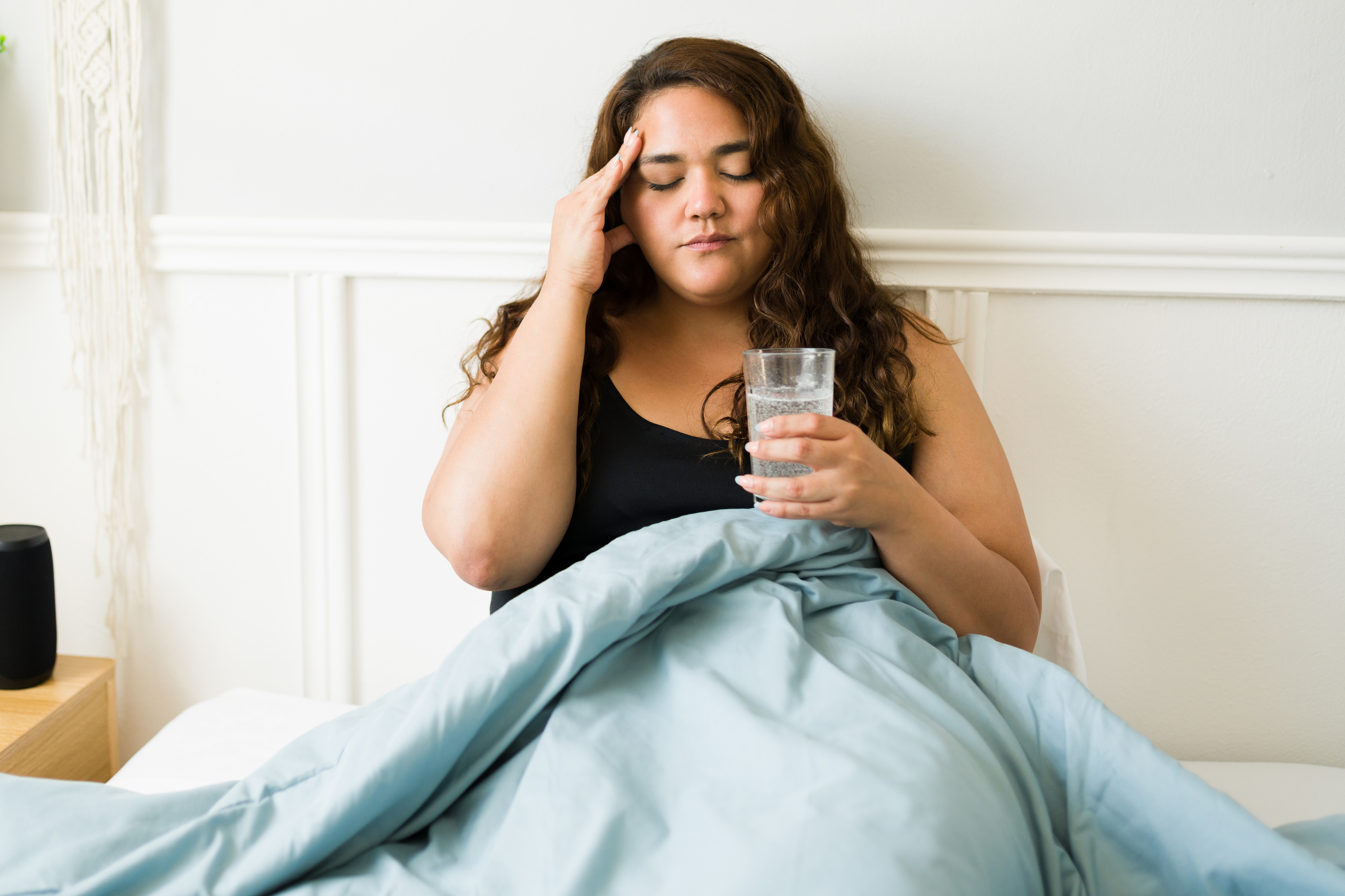
Dr. Amen also shared that it's possible that for some, hangxiety is just the anxiety you were drinking to avoid coming back to haunt you the next day. He explains, "One study found that shy people who have social anxiety disorder may experience a dramatic rise in anxiety the day after drinking."
He notes that anxiety can also be a symptom of alcohol withdrawal. "Surprisingly, that anxiousness you feel the day after drinking may actually be a symptom of withdrawal from alcohol. Withdrawal can last a day or two, making you feel more revved up and anxious."
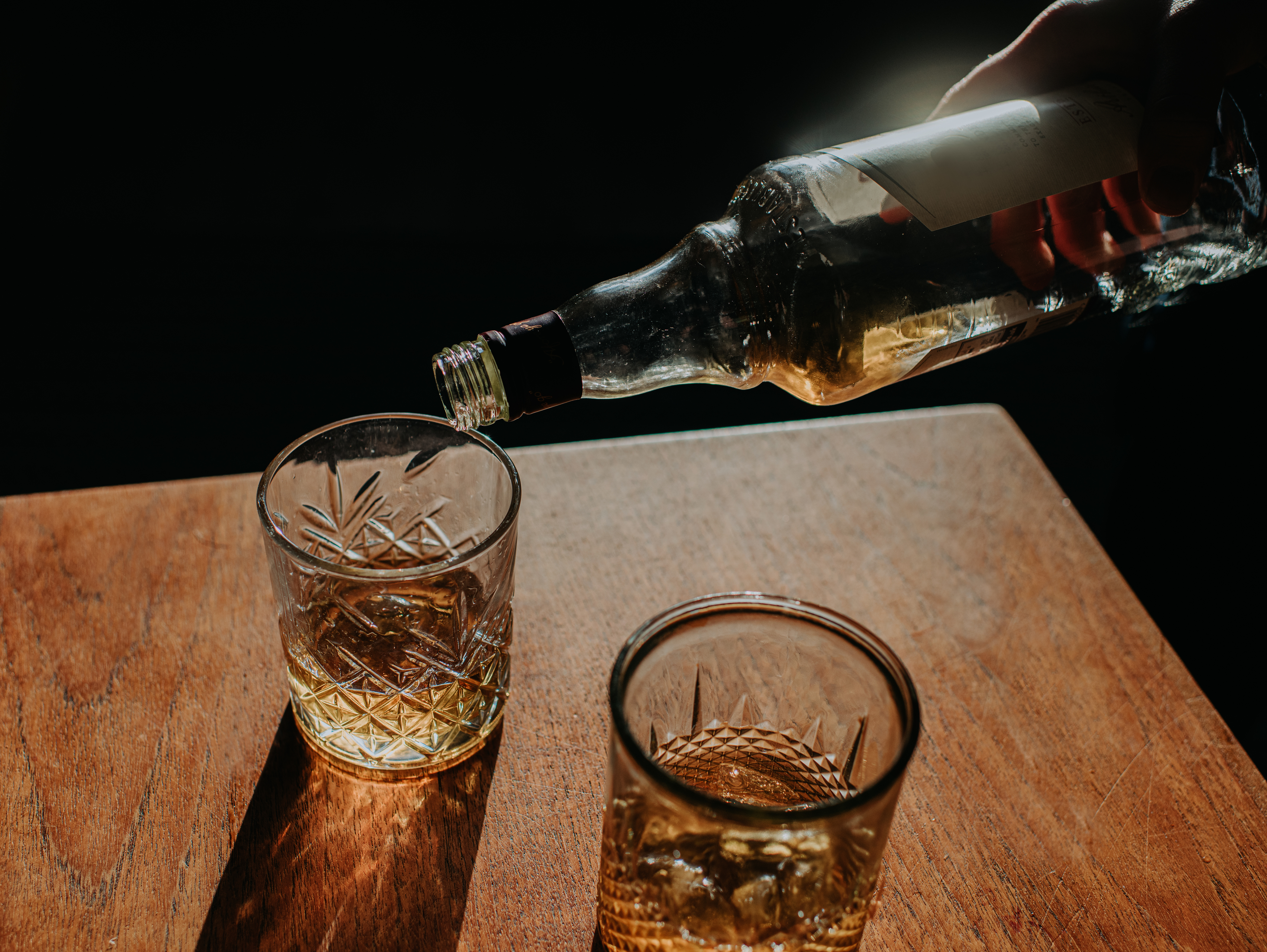
If you're dealing with hangxiety, Dr. Amen recommends taking care of your body, starting with getting plenty of fluids. "Drinking too much alcohol can lead to dehydration, so it's important to rehydrate. Think water, coconut water, or beverages with electrolytes. Ginger tea can be especially helpful in fighting nausea."
He also recommends coping with hangxiety by turning to some tried-and-true stress relief techniques like meditation and breathwork. If you've never meditated before, I can't recommend the free app Insight Timer enough. It has tons of really helpful resources that you can use to help relieve anxiety. And depending on where you're at with the hangover of it all, you might even find some relief by getting in a workout (or at least a quick walk).
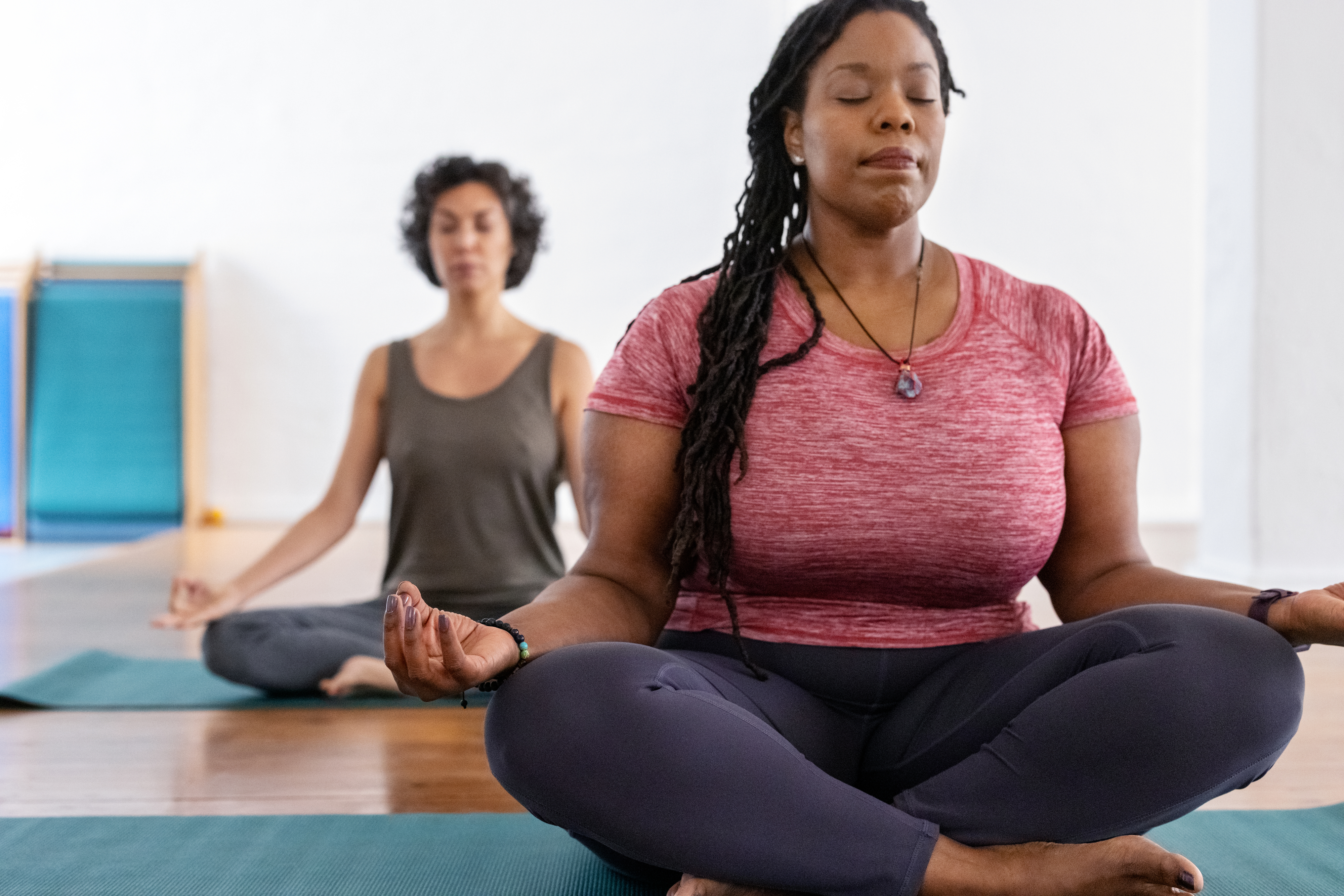
You might also want to simply drink less to avoid waking up with hangxiety. Drink a glass of water or another non-alcoholic beverage between cocktails, or skip the booze altogether. If you want to have a fun drink without "having a drink," there are tons of new mocktails on the market these days (I'm personally partial to Ghia's Le Spritz line), or you can easily make your own at home from whatever you fancy (I like to add a dash of bitters to a glass of strong ginger beer for a no-Moscow mule). I still enjoy a drink or two now and then when I feel like it, but having other options figured out means I spend much less time feeling hangxious.
Finally, Dr. Amen shared some signs that your drinking could be becoming problematic. "If you routinely drink more than planned, crave alcohol, or give up other activities to engage in drinking, it could be an indicator that you have a problem. A red flag is when your drinking causes trouble in any area of your life—at work, at home, in relationships, in your finances, or with the law."
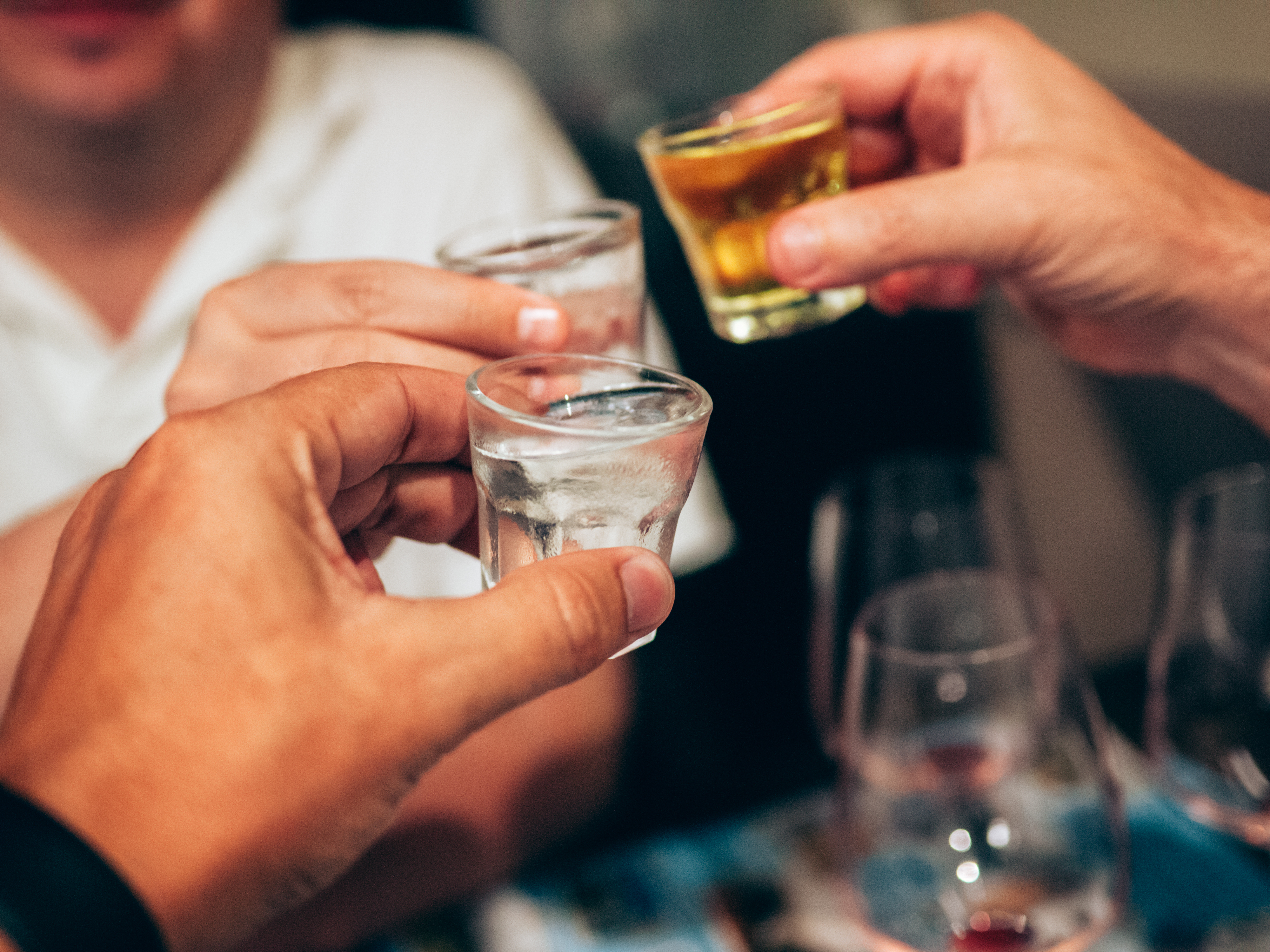
He added, "Alcohol is not a healthy way to cope with feelings of anxiousness or depression. Drinking too much alcohol exacerbates mental health disorders. Research has found that excessive alcohol use can interfere with neurotransmitters that are involved in mood and anxiety disorders. There are much healthier ways to calm anxiety."
If you or someone you know is struggling with substance abuse, you can call SAMHSA’s National Helpline at 1-800-662-HELP (4357) and find more resources here.
